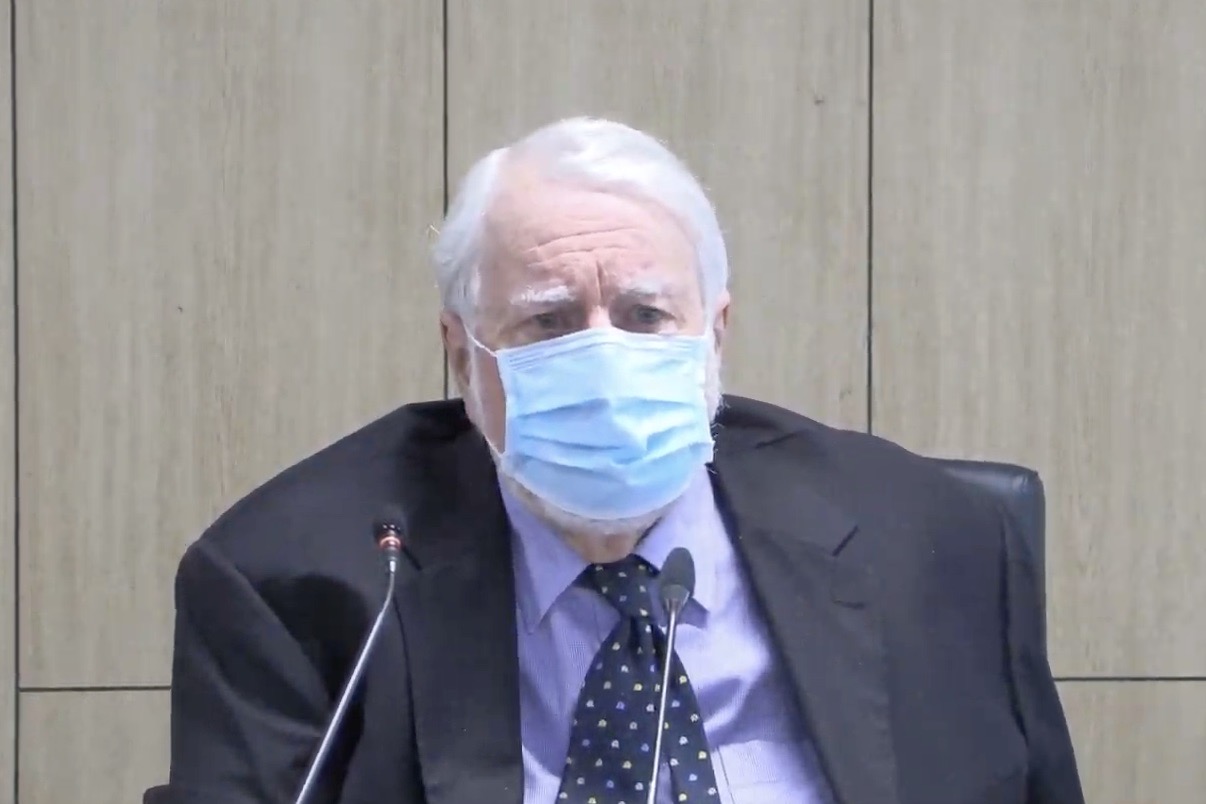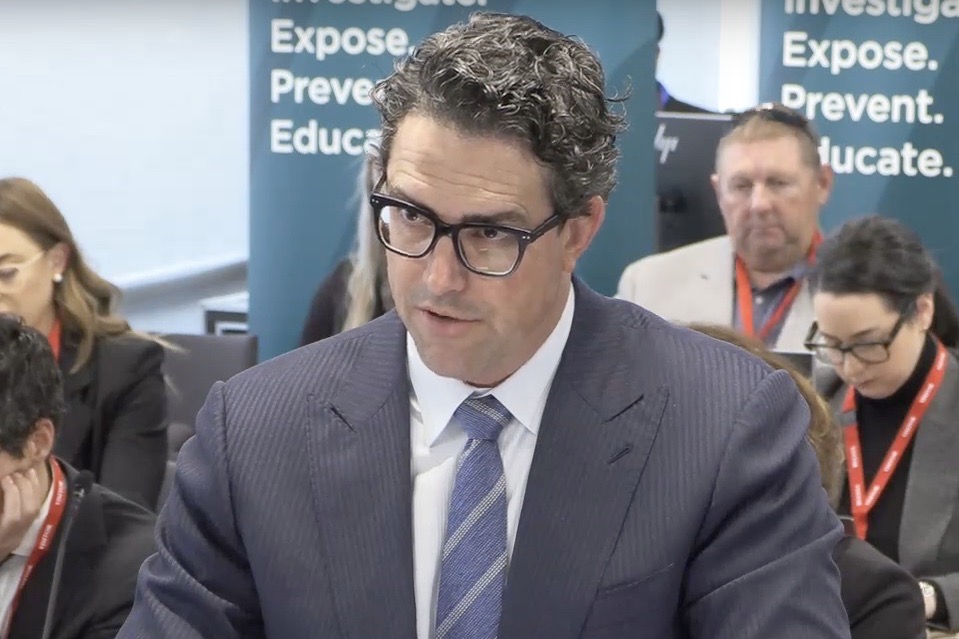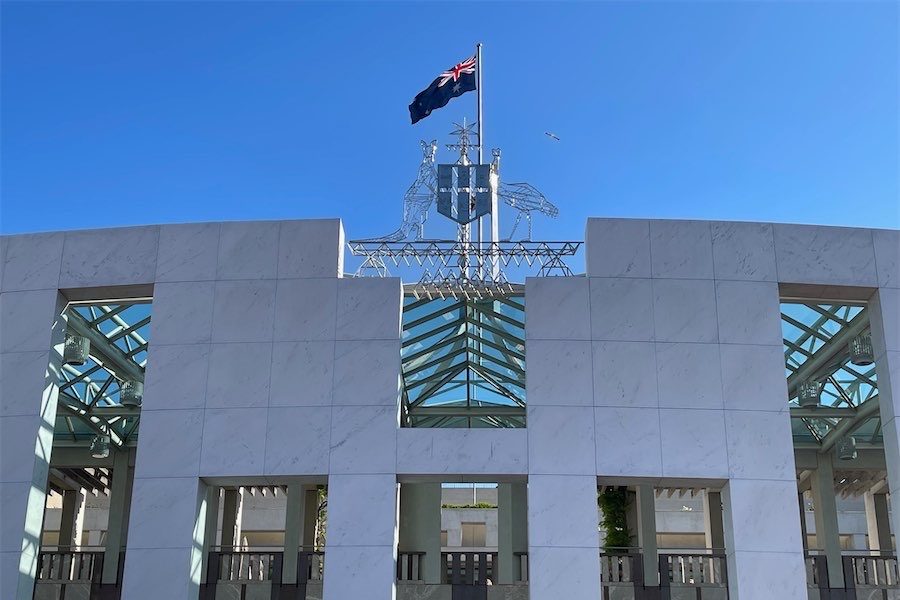
‘The goal posts have shifted today. This happened when we all learned that both tenders were over budget and the alleged preference of someone in the Education Minister’s office was to deal Manteena out of consideration.’
HUGH SELBY has been watching the revelations of the first day of the public hearing of the ACT Integrity Commission’s investigation into the Campbell Primary School Modernisation Project.
THURSDAY was the first day of public hearings by our Integrity Commission into whether public officials within the ACT Education Directorate [Education] failed to exercise their official functions honestly and/or impartially when making recommendations and decisions regarding the Campbell Primary School Modernisation Project between 2019 and 2020.

Lend Lease got the contract. The value of the project was some $18 million.
The selection process was an expression-of-interest stage followed by a tender process. Manteena (a locally based firm) and Lend Lease (a larger international company) were chosen from the “interest” stage and invited to tender.
Readers should note that no criticism is being made of either Manteena or Lend Lease.
A draft “tender evaluation” was prepared. The Manteena tender was more highly rated and was cheaper than the Lend Lease tender.
Despite repeat findings that Manteena be preferred (albeit by lower margins as ‘reassessments’ took place) the contract was given to Lend Lease, allegedly on the recommendation of today’s witness, Mr John Green.
The ACT Auditor General was later critical of the process.
The Commission is assessing whether there was inappropriate conduct at the bureaucratic or political level or both.
There were rumours – still being investigated by the Commission- that there was union pushback against the use of Manteena. It was rumoured that this pushback was made known to the relevant Government Minister. Witnesses will later be called from the union. The Minister too will provide evidence (whether in writing or spoken was not clear).
The Commission and its process
The Commissioner is Michael Adams KC, former NSW Supreme Court judge, and former Commissioner of the NSW Law Enforcement Conduct Commission.
The identity of the single witness (pseudonym John Green) appearing today and tomorrow was not revealed. His identity is subject to a suppression order in the interests of fairness. The live stream does not show him. We listen to his answers. Throughout today he was clear, unruffled and confident.
There will be further hearing days in September and, possibly, October.
The calling of a witness does not entail that he or she will be subject to adverse criticism. Such criticism can only follow the Commission hearing and considering all the evidence.
The day began with a closed session; that is, one or more matters were being discussed from which we, the public, were excluded. Readers will recall that this happened during the Sofronoff Inquiry, too. “Matters” warranting a closed session may, for example, relate to protecting the personal privacy of the witness or another person, or questions that draw upon information received in confidence where that information and/or the sources need to be protected, or claims of privilege. For more detail see the examination conduct guidelines here.
Counsel Assisting Callan O’Neill [CA] opened with an explanation of what the Commission can investigate and how it conducts its private and public examinations. There is no required preference for a private or a public hearing.
Mr O’Neill then outlined background events from which the opening to this article was taken.
He speaks clearly and with confidence. It would have been easier to follow and evaluate if he had told us his agenda so we could travel the road with him.

Counsel Assisting questions ‘Mr Green’
Mr Green is an engineer who has worked for local government, the private sector, and – since 2011 – the ACT government. Around late 2018 he was appointed to a position involving the government’s “Secure Local Jobs” Code.
His job had an educative function for business, and then – in response to an assessment of a business by others (known as auditors) – he would issue a compliance certificate.
The code requires compliance with “industrial relations integrity”. It is intended to work alongside the Commonwealth’s Fair Work Act.
Only a business with a current certificate of compliance with the “Secure Local Jobs” Code can tender for work.
Both Manteena and Lend Lease had the certificate. Such a certificate is time limited, the length respecting how well the business is known. The maximum time is two years.
There was an advisory council for which he arranged meetings and to which he gave reports.
There were three union representatives on that council. He had known one of those representatives over some years. They had met for work purposes. He doesn’t recall any comments to him by that representative, or within the council, about Manteena and Lend Lease.
(In his earlier “capital works” role he knew of Manteena and of union concerns about that company.)
That representative, along with others, felt the code didn’t go far enough. For example, that the code should require that the choice of “bargaining representatives” be discussed between the parties before bargaining. One or more unions were concerned that in negotiations the union was being removed as the “bargaining representative” for an enterprise agreement.
It was Mr Green’s view (confirmed by legal advice) that the code could not embrace that issue.
That earned him insults, such as, “my four-year-old daughter would do a better job than you”.
His first move to Education was a temporary position in 2019. During that short period he “signed off” on the expression-of-interest stage for the Campbell works.
At that time he understood the project to be an upgrade project, replacing some demolished buildings. Two parties were to be chosen from the six that had made expressions of interest.
He moved permanently across to Education early in 2020 during the memorable summer time of that awful yellow haze. His early tasks concerned dealing with the smoke hazard in schools before schools started for the year.
All of the above information was gleaned during a measured, non-combative interaction between the CA and Mr Green before lunch. The answers were always clear, the intent of the line of questioning rather less so. The commissioner interrupted occasionally with clarifying questions.
Questions after lunch focused upon early 2020 actions. The tenders were expected and submitted by late January 2020. Tenderers are told of the criteria they must address, and the weightings among those criteria.
As the commissioner noted, it is expected that the tender process would be followed and all actions done fairly. That process begins with an assessment by a tender evaluation team. The three members of that team are agreed by Education and Major Projects.
Questions then shifted to a sod-turning event for a new school construction in Denman Prospect. No explanation was given as to why this might be important. Mr Green recalls he was probably there for an hour, having arrived late.
While there he spoke to two representatives from the union. The chat was about other projects and the tendering (all of which was public information). They wanted another meeting about construction in education to be held at the union office. This was agreed.
While he doesn’t recall, he thinks it probable that the two representatives gave him their views – pithy but clear – about Manteena.
That later meeting was in mid-February with just one union representative [UR]. No notes were taken. They talked about procurement. UR felt that the government didn’t take “Secure Local Jobs” seriously enough. The conversation moved to Campbell. UR’s view was that Manteena didn’t look after its workers, that Manteena negotiated directly with its workers with no union-facilitated enterprise agreement, that Lend Lease was to be preferred. UR made no request to him.
The questions then shifted to Mr Green’s role with respect to the tender evaluations. Mr Green recalled being updated through informal meetings with the evaluation team.
He also recalled an informal chat with the “short-term” acting head of Education. She told him that she had been summoned to the Education Minister Yvette Berry’s office to be told (he thought, probably by the minister’s chief of staff) that Manteena was not to get the contract. He told her what was being done in the evaluation, that a report would be prepared, and it would come up for a decision. She told him to continue with the process. I gleaned that the atmospheric was “with all deliberate speed”, or “hasten slowly”. Sir Humphrey would approve.
The revelation that came out of nowhere
He thought this minister’s office involvement was unusual. He hadn’t previously experienced a minister’s office interfering in tender evaluations. He decided to ensure “dotting ‘i’s and crossing ‘t’s”. He told the evaluation team of what he had been told of the minister’s office view.
Both submitted tenders were “over budget”. Neither of them, said Mr Green, was affordable. This is significant for what can happen thereafter.
Mr Green explained various responses, ranging from rejection to accepting the new costing. In between there were several approaches to cut the cost. He preferred “Best and Final Offer” [BAFO]; however, there were other views held by evaluation team members.
Given that the Education Minister’s office had given a clear indication, and that both tenders were over budget, it was not a good idea to award the tender to Manteena and then try to pull down the cost to the budget figure. There was too much risk with that path. Mr Green’s view was not accepted by some others.
Advice was obtained from the Government Solicitor about if BAFO could be used, and if so, how, before any decision was made to choose the contractor.
Tellingly, the CA pushed Mr Green about his willingness to reject both tenders. Mr Green replied clearly, quickly and cogently. He agreed that such a course would mean starting again. It was a short series of questions that seemed to show that the CA had Mr Green as a target but it didn’t work. Mr Green won.
The goal posts have shifted today. This happened when we all learned that both tenders were over budget and the alleged preference of someone in the Education Minister’s office was to deal Manteena out of consideration.
There was a change in the evaluation team membership because one of its members withdrew, unhappy with the decision that the contract would not be given to Manteena. The whole team was replaced.
On Friday, we will learn more – most importantly how Lend Lease came to be given the contract.
“CityNews” legal commentator and former barrister Hugh Selby wrote brilliant, running commentary on the Sofronoff Inquiry’s public hearings, focusing upon the advocacy and witness performances. The “CityNews” coverage of the inquiry, including his daily reviews, is here.
Hugh Selby’s free podcasts on “Witness Essentials” and “Advocacy in court: preparation and performance” can be heard on the best known podcast sites.
Who can be trusted?
In a world of spin and confusion, there’s never been a more important time to support independent journalism in Canberra.
If you trust our work online and want to enforce the power of independent voices, I invite you to make a small contribution.
Every dollar of support is invested back into our journalism to help keep citynews.com.au strong and free.
Thank you,
Ian Meikle, editor









Leave a Reply